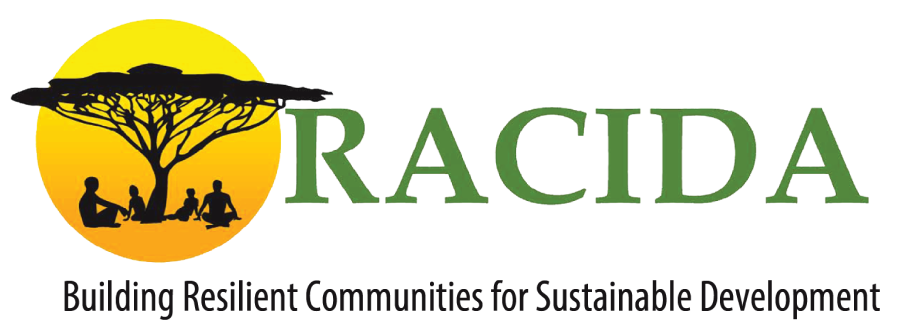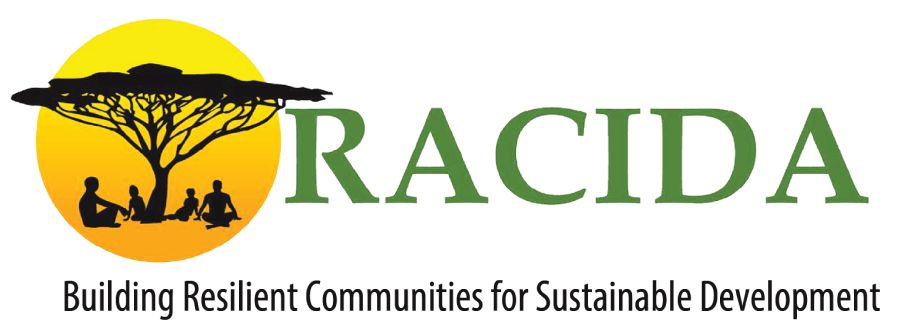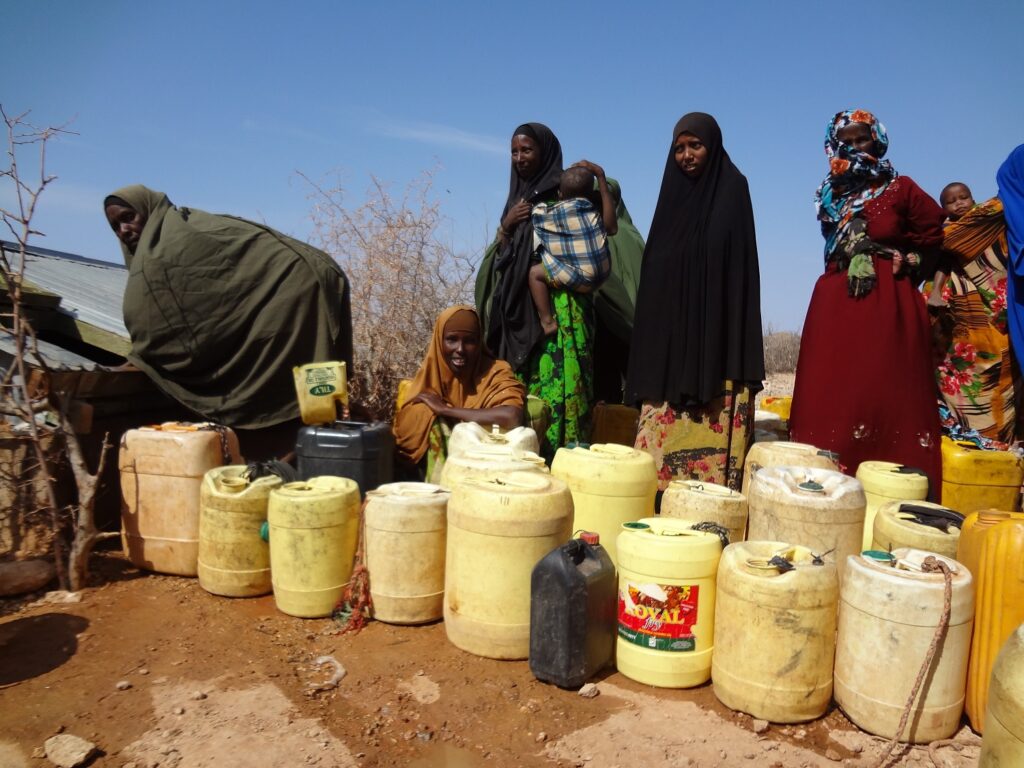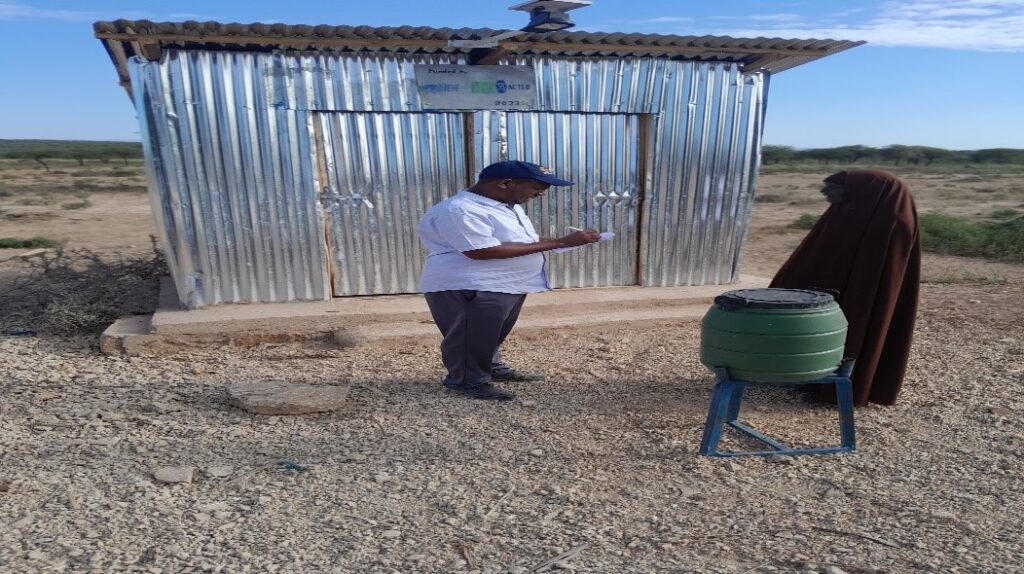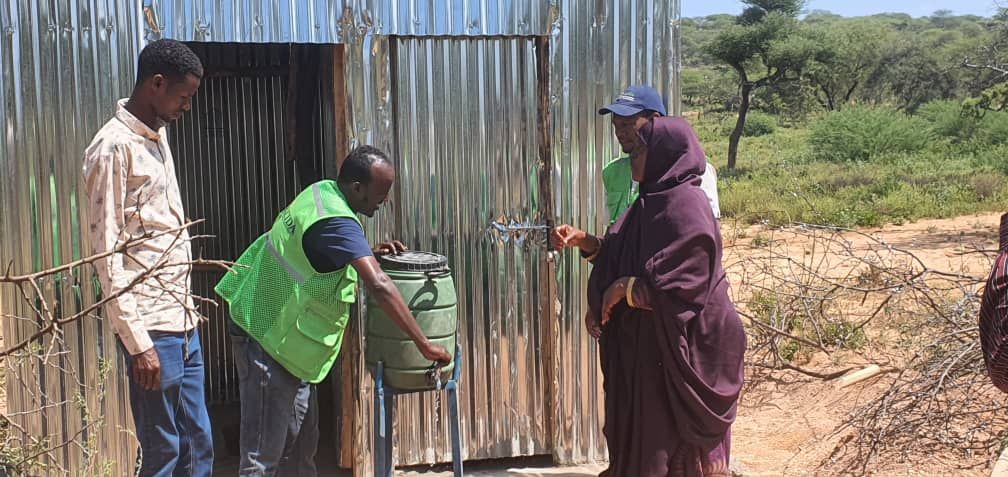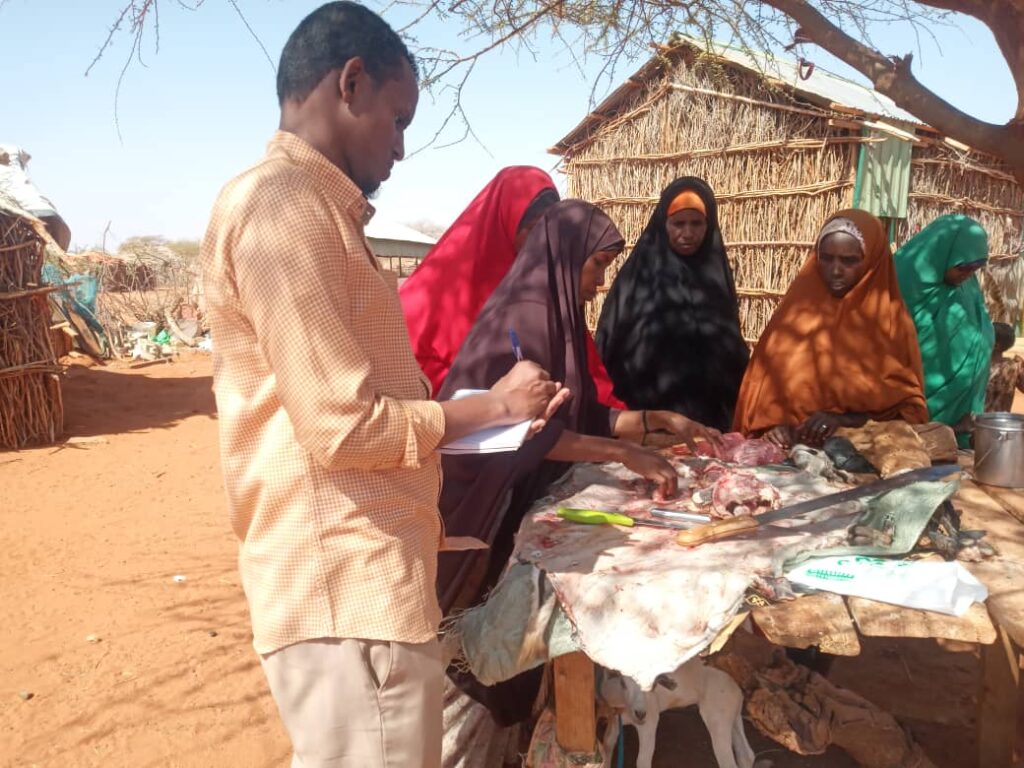STORIES FROM GOGOT VILLAGE IN MANDERA
The first signs of dawn cast a dreary lavender hue over the village of the small village of Gotgot with a population of 213 families in mandera district, northeastern Kenya. From inside the mud and wattle homes, low voices are heard planning a new day. Every murmur seems amplified in the stillness of the early morning. The tranquility is shattered by the crack of chopping firewood for the breakfast fire. The muezzin calls its worshipers to Morning Prayer. A child cries for food. An old man coughs. Soon the Dugsi School begins with the youthful recitations of Koranic verses.
As the emerging sun baths the village with the impending heat of the day, Abdia issack and her younger sister are already approaching the Banisaa pan about 14 kilometers away to fetch water. Their trail is narrow and cuts through a variety of shrub land and withered acacia trees the ladies are talking about their father Mr Issack who has taken their cattle herds south to Ashabito for grazing. The ladies, each carrying an empty 20-litre jerry can on her back, descend with great difficulty of longer distance and lion bushes. The Banissa dam is the only pan in the area with water throughout the year,
Abdia recalls the incident of that “big cat” with an aura of sadness. Such incidents in this area of Mandera district are common. Abdia remembers another encounter while returning home from fetching water a. “It was still dark and a lion crossed the trail. I was so scared I fell on my back and spilled all of my water. But I soon got up and ran as fast as I could and escaped.” Deka Abduallahi of Gotgot had a similar story when a hyena chased down her donkey on the way to Banissa and killed it.
Hardship, stemming from creature or climate, is something these Kenyans are used to facing. The people of Gotgot are agro-pastoralists and farm along the seasonal lagga beds while herding their cattle and camels in other parts of the district depending on the availability of good pasture. This area of undulating hills is well suited for livestock but drought prone and extremely hot with average annual temperatures around 35-40 degrees Celsius.
From a traditional nomadic past, the people of Gotgot began farming two generations ago. About eight years ago the local elders decided to settle in the present site of Gotgot village. The location was close to a natural depression that held water for a month or so after the rains and near a main road cleared during the British colonial period. These days, a rusted, gray Land Rover with an open roof passes three times a week plying this bumpy dirt road between Banisa and Rhamu, two of the larger trading centers in the district.
The availability of water is Gotgot’s main problem according to the chief, Abey “Communities can hire water tankers to bring water in the dry season. But we had nowhere to put the water when it arrived. We then placed the water in polythene sheets in troughs in the ground. We had to use the water fast and it was expensive. Those who could not pay the 6 ksh per jerry can price would go to the Banissa pan still,” says Abey.
“The first relief water tankering was 3 years ago. The water came from the riverbed in Rhamu and cost 12,000 kshs every trip. This was very difficult to pay for since many of our animals were lost during the last drought 2006,” chief Abey recalls. “At that time we needed 1 tanker of water every two days and received only 4 for the whole dry period since the area is very far from the water point around 200km.
As the drought brought hardships it also presented opportunities. RACIDA first visited the people of Choroqo during the height of the drought when the NGO was conducting assessment. When the district was recovering from the drought, RACIDA and the people of Gogot planned to build a large water storage tank in the village called a berkad.
Berkads are not a new technology and use surface water run-off to fill the tank during the rains. In fact, they have been used as dry season water sources in parts of Somalia for many years. Their main advantage is to store water towards the end of the dry season for those left in the village while the men and older boys are away with the livestock. The berkad in Choroqo completed recently with funding from the Cordaid and can hold almost 140,000 liters of water.
“We’re better off now and there are less risks,” asserts Abdia. “Before, the water was used for drinking only, not even for bathing or prayers. Now we can use water as we wish.” Abdia, now a grandmother, says she has more time for “small work at home” like cooking, cleaning, praying, and making gala for thatching traditional houses.
“It took so long to fetch water before, about 7 hours, and there was never enough water or time for the family and animals,” says Abdia. “With water close by, I have more time for looking for grass for my cow and grinding maize.
“People around here have a good source of water now and not at a high cost,” says chief Abey. Time was wasted getting water before. The tank has helped the community. Water is sold from the tank and the money is used for paying for water tankering if the dry season is long…The water from the water tanker can now be stored in the berkad.”
And what of the future? The chief continues, “Some people pay for water with building materials so we are planning on building a primary school here. This is all because we now have water.” Abdia says that we cannot predict the future but hopes that “the berkad will have water and there will be plenty of grass for the better.” Abdia observes, “It is only God who knows.”
RACIDA continues to work with the local communities in the drought prone region of western Mandera district. Currently, RACIDA is implementing a drought recovery programme in the region funded by Cordaid.
